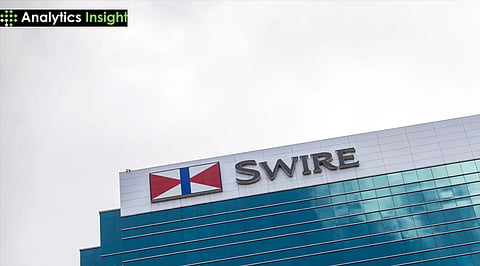

British conglomerate Swire Group has decided to lay off nearly 10% of its staff at the head office in Hong Kong. The restructuring is said to be part of a strategy to tighten operations and boost efficiency amid reduced corporate earnings due to China’s economic slowdown.
According to reports, the company laid off approximately 40 employees in its sustainable development, finance, and risk management divisions last week. The total number of redundancies includes several top-end executives. Sources said the restructuring affected top positions, including Group Head of Sustainability, Mark Harper.
Swire Group confirmed the news to Bloomberg with a statement, saying it is reorganizing its office setup to enhance business performance and streamline its internal work processes. However, Harper did not comment on his departure.
The Chinese market is important to Swire. Nearly 79% of Swire Pacific’s total income comes from Hong Kong and China markets, and 91% of its non-current assets are in these countries. This high level of concentration has amplified the effect of the extended Chinese property slump and the wider economic slowdown.
Employees have reportedly speculated that the cost-cutting drive could include a shift toward AI-driven efficiency tools as the group tries to protect profitability amid uncertain macroeconomic conditions. The ongoing real estate crisis in China and the continuous trade disputes between the US and China have additionally compromised Swire’s financial stability.
As the report from the agency states, Swire Pacific’s net profit went down by 71% last year, indicating the pressure from its China presence. Earnings continued to soften in the first half of 2025, sliding 2% year-on-year.
During Wednesday’s session, Swire Pacific Class A shares closed unchanged at HKD 67.50, from the previous close of HKD 67.55. The market capitalization of the company was HKD 86.21 billion on 26 October 2025.
Also Read: Amazon Layoffs Hit NYC, 700 Jobs Cut Amid Global Restructuring
The group has more than 121,000 employees worldwide, including more than 500 staff in its headquarters in Hong Kong. The layoff is the latest signal of a wider strategic reset from the conglomerate amid economic headwinds.
The group did not disclose the entire extent of possible employee reductions, but such actions show how worldwide companies with huge Chinese presence are re-evaluating their operations in tougher economic conditions.
As long as the Chinese slowdown lasts, more corporate cost-cutting, digital transformation, and regional expansion plans will be in the spotlight of the industry-watchers in Hong Kong.
As global corporations tighten belts amid economic uncertainty, will strategic layoffs emerge as a necessary reset or simply a temporary fix?
